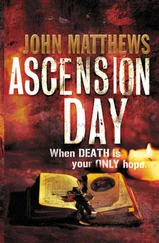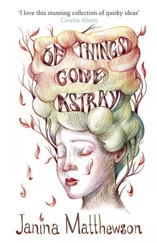John Matthews - Past Imperfect
Здесь есть возможность читать онлайн «John Matthews - Past Imperfect» весь текст электронной книги совершенно бесплатно (целиком полную версию без сокращений). В некоторых случаях можно слушать аудио, скачать через торрент в формате fb2 и присутствует краткое содержание. Жанр: Триллер, на английском языке. Описание произведения, (предисловие) а так же отзывы посетителей доступны на портале библиотеки ЛибКат.
- Название:Past Imperfect
- Автор:
- Жанр:
- Год:неизвестен
- ISBN:нет данных
- Рейтинг книги:4 / 5. Голосов: 1
-
Избранное:Добавить в избранное
- Отзывы:
-
Ваша оценка:
- 80
- 1
- 2
- 3
- 4
- 5
Past Imperfect: краткое содержание, описание и аннотация
Предлагаем к чтению аннотацию, описание, краткое содержание или предисловие (зависит от того, что написал сам автор книги «Past Imperfect»). Если вы не нашли необходимую информацию о книге — напишите в комментариях, мы постараемся отыскать её.
Past Imperfect — читать онлайн бесплатно полную книгу (весь текст) целиком
Ниже представлен текст книги, разбитый по страницам. Система сохранения места последней прочитанной страницы, позволяет с удобством читать онлайн бесплатно книгу «Past Imperfect», без необходимости каждый раз заново искать на чём Вы остановились. Поставьте закладку, и сможете в любой момент перейти на страницу, на которой закончили чтение.
Интервал:
Закладка:
Naugier looked between Poullain and Molet, as if pressing home a final seal of understanding. Machanaud was a known drunkard and bar slouch. A 'few more than normal' meant that he was ratted. 'Hopefully this has cleared up this misunderstanding. You may, as I mentioned earlier, Monsieur Molet, pursue this line of questioning at a later instruction when we go back over previous statements. And Captain Poullain, I would suggest that in future you put everything in files you present to me — and let me decide whether or not they should be disregarded.'
The noise of the trees swaying in the breeze seemed much louder in the silence following. Poullain muttered 'I understand', while Molet merely nodded and contemplated some dried leaves floating past.
That was it, thought Dominic. He felt a sudden wave of relief wash over him. Weeks of worry, and in the end hardly any blood had been shed. The fact that the file entry had been buried equally to avoid local hierarchal awkwardness had never even surfaced, and now looked unlikely to at any later date. Dominic had panicked halfway through that Naugier would suddenly wheel around on him. Only now were the knots in his stomach easing. A low sigh escaped, lost among the wind rush through the trees.
And as quickly Dominic was swept with guilt. How could he be relieved at just avoiding some awkward questions, when what he had witnessed had probably quashed one of Machanaud's last chances of salvation? He followed Molet's contemplative gaze towards the river: some sunshine broke briefly through the trees, flickering off its surface. Glimmers of hope, fading just as quickly as the clouds again rolled across. He had built up a wariness and fear of Molet, and now found himself empathizing with him.
Naugier drew on the last inch of his Gitane and stubbed it out. He looked upstream again, his thoughts returning to where someone might have hidden… if there was someone else? No possible refuge on the lane with the cars passing, no other area of flattened or disturbed wheat — so where? The view along for the most part looked clear, but he needed a marker to be able to judge distance. Picking out Levacher, he asked him to go up to where his colleague stood. 'Then walk in a straight line until you are halfway down the river bank.'
As Levacher walked up the river bank, forty yards beyond, Dominic thought he saw a figure peering through the bushes bordering the lane. He was sure it wasn't Servan, he hadn't noticed a gendarme's uniform… but just as quickly the figure was gone.
Levacher re-appeared after a moment. Naugier waved one arm, directing Levacher until he stood halfway down the bank. 'Can you see the gendarme now standing on the river bank?'
Slight pause from Machanaud, then, 'Yes.'
Naugier waved back, shouting, 'Go twenty yards further along and stop.' He asked the same question of Machanaud with Levacher in two more positions further back and received a 'yes' on each one. There were few obstacles along the river bank, the bushes low and sparse.
Naugier instructed the greffier . 'Let the record show that the suspect could see a figure clearly along the river bank up to sixty yards past a point running parallel with where the attack took place.'
Molet looked down and slowly closed his eyes, recalling one of the key greffier entries from the last instruction : '.. .no other area of flattened or disturbed wheat was discovered other than that where the boy was finally found. Due to the risk of exposure of that position, directly beside the lane where cars passed, it has been concluded by the police and attending forensics that the first attack probably took place at some point down the river bank, obscured from the lane.'
Now the two entries would be linked in the jury's mind and would effectively seal his client's fate.
He had started the morning with some optimism, but bit by bit it had evaporated. First the car discrepancies dismissed out of hand, now the image of Levacher standing in clear sight of all present. Levacher could have moved another twenty yards back and still been visible. The image had burned home strongly. His client was now on record that he was in clear view of where they thought the boy had crossed the river and where it was presumed the first attack took place. Any hopes he'd harboured of seeding strong doubts about Machanaud's guilt had gone in that moment. Molet knew now that it would take nothing short of a miracle to save his client from being condemned.
As they made their way back up the river bank and onto the lane, Dominic noticed a figure in the distance towards Brieulle's farm. It took him a moment, squinting against the sting of the strong wind, to recognize that it was Jean-Luc Rosselot. A sad and lonely figure among the shifting blanket of wheat, watching them play out, like markers on a draught board, the scenes that led to his son's death.
NINETEEN
'What makes you think it's a case for me?'
'Mainly the boy's use of French.'
'How fluent is his French?' asked Calvan.
'I only asked a few questions… I got a bit flustered. When he started talking in French, it caught me completely by surprise. I just asked a few rudimentary questions, went about as far as my pidgin French would take me — then stopped the session. What few answers there were sounded pretty fluent, but I couldn't be sure. I just didn't ask enough questions.'
Marinella Calvan was flattered that Lambourne had called her. They'd met three years previously at a medical convention in Atlanta, and on average he'd called her three times a year since. But this was the first real professional consultation. The rest had been just minor points of reference, do you know such and such professor, someone who'd usually published a paper Stateside and he thought she might have better knowledge of it than him. Then invariably he'd get around to how she was, how was work, life in general? She had the feeling that if she said on one of the calls, 'I got married the other month or I just met this great guy,' the calls would suddenly stop. Except when there had been the occasional great guy, she hadn't told him; she obviously didn't want him to stop calling.
At their first meeting, a quick coffee between lectures at the Atlanta convention, they discovered they had a lot in common: he was divorced, she had separated from a common-law husband. She was just coming up to forty, he was forty-four. Light banter, a few quips, some one liners that belonged more to Seinfeld than Freud. Questions and general background, but no hard and fast answers. Two psychiatrists fencing with each other, both knowing that what had partly spoilt their respective relationships was being too deep, too questioning, not fully switching off when home. Keep it light and simple this time.
They'd snatched a couple more coffees together during the convention, then spent two hours at a cocktail bar on the evening it had closed. But their only real date together had been almost eighteen months later, December 1993. She'd come over to the UK for five days to handle a case in Norfolk and had managed to grab an evening in London. He showed her his office and they went to dinner and the theatre nearby. They'd also been able to find out a lot more about each other, not just personally but professionally: their respective views on psychology. She'd felt guilty at one point that she seemed to be hogging most of the conversation purely because her background with Past Life Therapy (PLT) was more unconventional; though Lambourne had admitted his fascination and seemed to be egging her on.
In contrast, he'd only had a few cases involving PLT, mostly conventional cures for phobia: regressing a patient initially back to childhood in search of text-book, Freud-induced phobia, discovering nothing, so heading back even further. Patients with inexplicable fears of fire, drowning or enclosed spaces were often found to have had alarming experiences in past lives which explained their phobias. A recent survey showed that twenty-two percent of American psychiatrists used PLT regularly alongside standard therapy, though she had no idea of figures for the UK and Europe.
Читать дальшеИнтервал:
Закладка:
Похожие книги на «Past Imperfect»
Представляем Вашему вниманию похожие книги на «Past Imperfect» списком для выбора. Мы отобрали схожую по названию и смыслу литературу в надежде предоставить читателям больше вариантов отыскать новые, интересные, ещё непрочитанные произведения.
Обсуждение, отзывы о книге «Past Imperfect» и просто собственные мнения читателей. Оставьте ваши комментарии, напишите, что Вы думаете о произведении, его смысле или главных героях. Укажите что конкретно понравилось, а что нет, и почему Вы так считаете.












